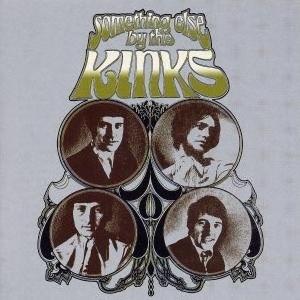Zack: As much as I love Exile on Main St., Beggar’s
Banquet, and Let it Bleed, Aftermath is my favorite Rolling Stones album.
Besides for having my single favorite Stones song (Paint it Black, because I’m
just so original), it’s just jam-packed with that vintage sound of blues
harmonica, hard rock guitar, and sexually-charged lyrics. It is, quite frankly,
rock ‘n’ roll. When you picture McCartney and Lennon or the Davies brothers or
even Pete Townshend setting out to write songs, the image probably involves some
paper and a pencil. Probably an acoustic guitar or something as well. And,
depending on the era, maybe a little something extra to boost the creative
process. Now picture Mick Jagger and Keith Richards during the songwriting
process. If you’re anything like me, you immediately saw scantily-clad women,
empty bottles everywhere, and some smashed windows or something. Essentially,
you saw what they sing songs about personified into real life. How badass is
that? With Aftermath, you get a Stones album so good it could only have
followed one hell of a bender. It’s no frills, stripped-to-the-bone music, but
damn is it good.
Favorite Tracks: Paint it Black; Under My Thumb; Going Home
Emily: The Rolling Stones just aren’t a band I’ve
explored much on my own, but I’m glad to be able to experience them through the
list. After listening to Aftermath, there’s no doubt in my mind as to why the
band is legendary. They infuse 60s rock with classic blues, with each track
displaying different levels of each. Paint It Black, the best-known song of
the album (which was surprisingly not included on the original release), leans
more towards the rock end with its driving guitar (and sitar) riff. Most of the
other tracks, however, are more straightforward blues with a bit of
psychedelia. The balance between rock and blues was most apparent to me in the
11-minute-long closing track, Goin’ Home. Usually songs that break the 6-minute
mark tend to drag on forever, either repeating the same notes over and over or
venturing into crazy jam territory. Goin’ Home does neither of those, which I
think is why I enjoyed it so much. The blues influence is clear, but it’s
classic rock through and through. Without being repetitive or venturing too far
from the core sound and story of the song, Goin’ Home is just 11 minutes of
great music – a fitting conclusion to a great album.
Favorite Tracks: Paint
It, Black; Goin’ Home; Think
Matt Brune: This album sums up the early Stones quite nicely. This is the first album to be
made entirely of songs written by the Jagger/Richards partnership. This song
was also the first to be recorded completely in the States. It featured the
late and ever so brilliant Brian Jones on a variety of instruments, including
marimbas and sitar. There are different UK and US versions of the album, which
was common practice for British bands in the 1960s. The UK version had Mother’s
Little Helper on it, which is by far one of my favorite Stones songs. The US
version had Paint It, Black, another amazing classic. Songs of merit on both
versions include Stupid Girl, Under My Thumb, and It’s Not Easy.
Favorite Tracks: Mother’s Little Helper; Paint
it Black; Under My Thumb

